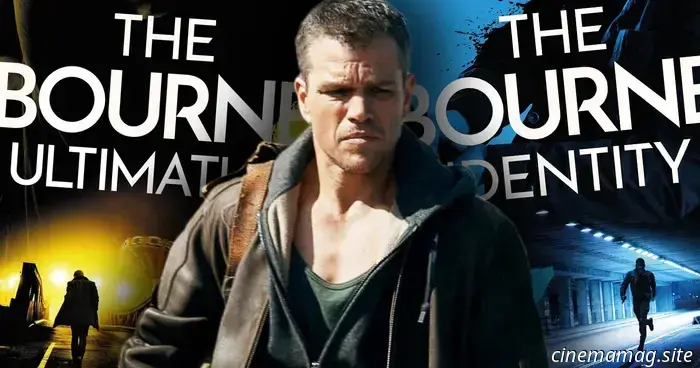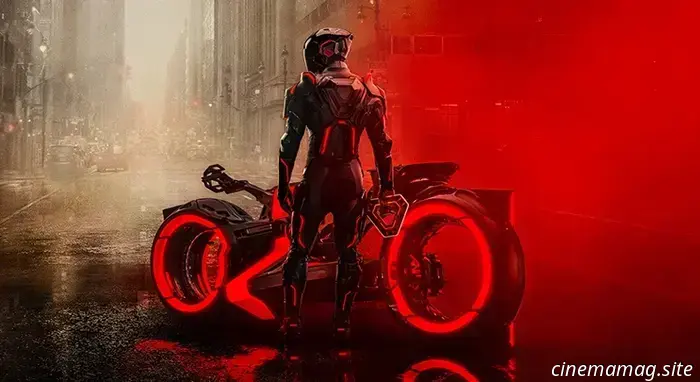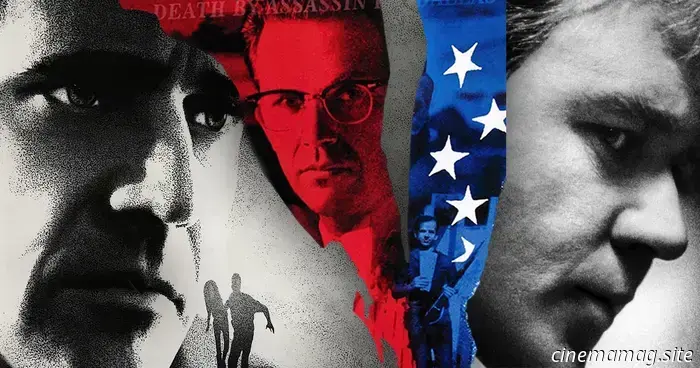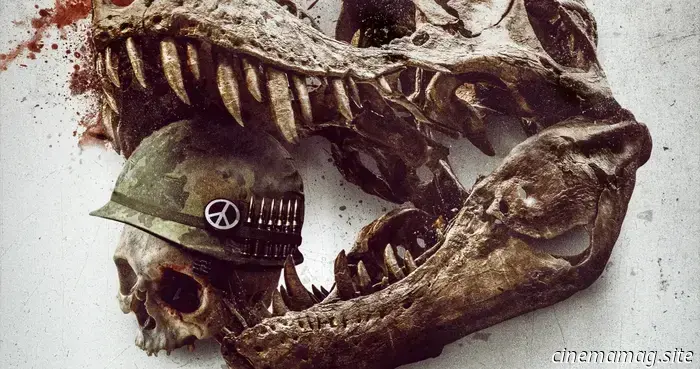
The Bourne Difference: Key Changes Between the Book and the Film
Ricky Church discusses the significant differences between the Jason Bourne book and film series…
With the recent announcement that the Jason Bourne franchise will transition from Universal to a different studio following the sale of its rights, it’s an opportune moment to reflect on the series, especially since it's uncertain whether Matt Damon will reprise his role or if the new studio will opt for a complete reboot. Should they choose to reboot everything, it could present a chance for the upcoming Bourne films to closely align with Robert Ludlum’s renowned novels, more so than the Damon iterations ever did.
Although the Damon films were entertaining and sparked a new era of spy movies (with Bourne’s frustrating shaky cam becoming somewhat of a standard for several years), they sacrificed much of the enigmatic allure and character complexity found in Ludlum’s books as they loosely interpreted the stories to suit a modern audience. While I appreciate the films for what they represent, I believe they overlooked the subtleties of Ludlum’s work. Here are some of the most notable alterations made by the films compared to the novels.
The Time Period
This alteration is the most apparent and one the films could not escape, as The Bourne Identity was initially published in 1980. Ludlum drew heavily from the late 60s and 70s, with significant historical events, notably the Vietnam War, impacting the narrative. This influence is consistent throughout The Bourne Supremacy and The Bourne Ultimatum, which explore the politics of 1980s China and the waning days of the Cold War. The modernization in Damon’s version of The Bourne Identity employed early 2000s technology, including high-tech satellites, tracking devices, and cell phones, intensifying the pressure on Bourne as he evaded the CIA and its various assassins.
However, this update significantly modified Bourne’s backstory, leading us to another deviation…
The Real Bourne Identity
In the film, Damon’s character is portrayed as a highly trained assassin for the covert CIA program Treadstone, willing to eliminate anyone without hesitation. Across the trilogy, their brutal training methods reveal a ruthless approach, psychologically breaking recruits to execute missions without question. It’s not surprising when Bourne discovers he’s actually an assassin employed by a clandestine CIA division that even the CIA itself wouldn’t officially endorse.
In the novels, Bourne's identity is far more intricate and shrouded in mystery, riddled with red herrings. He is reputedly one of the deadliest assassins globally, rivaling Carlos the Jackal, a notorious assassin with an extensive network looking to eliminate Bourne from the equation.
However, that’s not the complete truth. Jason Bourne served in the Vietnam War and was part of the Medusa unit, composed of dangerous criminals specifically trained outside standard engagement rules. Bourne ultimately betrayed his unit and was killed by David Webb, Medusa's leader. Webb subsequently joined the CIA, assumed the identity of Jason Bourne, and fabricated killings to draw the Jackal out and kill him. Their cat-and-mouse game shifted when the Jackal attempted to kill Webb, resulting in his amnesia and his belief that he was Jason Bourne.
While the update to the present day and Damon’s age excluded Vietnam, filmmakers could have substituted it with the Gulf War or a more recent conflict to maintain much of Bourne’s identity, shifting the focus to his rivalry with the Jackal instead of the conventional portrayal of sinister CIA figures attempting to conceal their actions—a recurring theme throughout the films. Although this adaptation kept the series engaging, the intricate twists in Ludlum’s original novel provided a uniquely thrilling spy experience.
Bourne’s Allies
At the start of his journey as a spy with amnesia, Bourne had a relatively small circle of allies. As his story progressed, he acquired more allies, even after recalling his identity as David Webb. However, this isn't entirely reflected in the films, where Bourne often operates alone.
In the novels, Bourne collaborates with Alex Conklin, his CIA handler played by Chris Cooper in the films. In both the book and the film versions of Identity, Conklin is a foe to Bourne, acting on the belief that Bourne/Webb has gone rogue. There’s also Dr. Morris Panov, a psychiatrist assigned to assist Webb in coping with his amnesia and navigating the conflicting personas of David Webb and Jason Bourne. In The Bourne Supremacy and Ultimatum, both characters are integral to Bourne's missions, while the films omit Panov and portray Conklin as corrupt, resulting in his death by the end of Identity.
While the films introduced new allies like Pamela Landy and Nicky, Bourne predominantly operated independently throughout most of the series. Although the absence of or changes to Bourne’s companions do not significantly detract from the






Other articles
 Worlds clash in the inaugural TRON: Ares trailer.
Following an impressive showcase at CinemaCon this week, Disney has officially released the first trailer for TRON: Ares, the third entry in the sci-fi franchise that began with 1982's TRON and continued with 2010's TRON: Legacy. The film is directed by Joachim Rønning (known for Pirates of the Caribbean: Dead Men Tell No Tales and Maleficent: Mistress of Evil) and stars Jared Leto in the lead role.
Worlds clash in the inaugural TRON: Ares trailer.
Following an impressive showcase at CinemaCon this week, Disney has officially released the first trailer for TRON: Ares, the third entry in the sci-fi franchise that began with 1982's TRON and continued with 2010's TRON: Legacy. The film is directed by Joachim Rønning (known for Pirates of the Caribbean: Dead Men Tell No Tales and Maleficent: Mistress of Evil) and stars Jared Leto in the lead role.
 The Key Contemporary Conspiracy Thrillers
Hasitha Fernando presents ten must-see conspiracy thrillers... This sub-genre of film originated with titles like The Manchurian Candidate and The Ipcress File, and it truly thrived in the 1970s with notable successes like Three Days of the Condor, All the President’s Men, Marathon Man, and Executive Action. The films primarily […]
The Key Contemporary Conspiracy Thrillers
Hasitha Fernando presents ten must-see conspiracy thrillers... This sub-genre of film originated with titles like The Manchurian Candidate and The Ipcress File, and it truly thrived in the 1970s with notable successes like Three Days of the Condor, All the President’s Men, Marathon Man, and Executive Action. The films primarily […]
 In the trailer for Primitive War, soldiers confront dinosaurs in Vietnam.
The initial trailer and several images have appeared online for the action thriller Primitive War, directed by Luke Sparke, which is based on Ethan Pettus’ novel of the same title. Taking place in 1968 amid the Vietnam War, the film centers on a reconnaissance unit that finds itself hunted by ancient, predatory creatures during a mission.
In the trailer for Primitive War, soldiers confront dinosaurs in Vietnam.
The initial trailer and several images have appeared online for the action thriller Primitive War, directed by Luke Sparke, which is based on Ethan Pettus’ novel of the same title. Taking place in 1968 amid the Vietnam War, the film centers on a reconnaissance unit that finds itself hunted by ancient, predatory creatures during a mission.
 Fox has extended the contracts for The Simpsons, Family Guy, American Dad, and Bob's Burgers for four more seasons each.
Fox has secured its major animated franchises for the next four years through a "meganimation deal" with Disney TV Studios and 20th Television Animation. This agreement includes four-season commitments for The Simpsons, Family Guy, Bob’s Burgers, and the returning American Dad. The deal will extend until the 2028-29 TV season and [...]
Fox has extended the contracts for The Simpsons, Family Guy, American Dad, and Bob's Burgers for four more seasons each.
Fox has secured its major animated franchises for the next four years through a "meganimation deal" with Disney TV Studios and 20th Television Animation. This agreement includes four-season commitments for The Simpsons, Family Guy, Bob’s Burgers, and the returning American Dad. The deal will extend until the 2028-29 TV season and [...]
-sixth-scale-figure-unveiled-by-Hot-Toys.jpg) Hot Toys has revealed a sixth scale figure of Darth Maul from Star Wars, featuring concept art.
Hot Toys has announced its soon-to-be-released sixth scale Darth Maul (Concept Art) collectible figure, drawing inspiration from the initial concept designs of the Sith Lord featured in 1999’s Star Wars: Episode I – The Phantom Menace. Take a look at the official promotional images and information here… SEE ALSO: Star Wars Mythos Asajj Ventress Premium Format Figure unveiled […]
Hot Toys has revealed a sixth scale figure of Darth Maul from Star Wars, featuring concept art.
Hot Toys has announced its soon-to-be-released sixth scale Darth Maul (Concept Art) collectible figure, drawing inspiration from the initial concept designs of the Sith Lord featured in 1999’s Star Wars: Episode I – The Phantom Menace. Take a look at the official promotional images and information here… SEE ALSO: Star Wars Mythos Asajj Ventress Premium Format Figure unveiled […]
 The Severed Sun, a religious folk horror film, has released its trailer and poster.
Dark Star Pictures has unveiled a poster and trailer for the British folk horror film The Severed Sun. Written and directed by Dean Puckett, the story follows Magpie, a young woman who inadvertently awakens a supernatural creature that torments her community after she murders her abusive spouse. The cast features Emma Appleton, Toby Stephens, Barney Harris, […]
The Severed Sun, a religious folk horror film, has released its trailer and poster.
Dark Star Pictures has unveiled a poster and trailer for the British folk horror film The Severed Sun. Written and directed by Dean Puckett, the story follows Magpie, a young woman who inadvertently awakens a supernatural creature that torments her community after she murders her abusive spouse. The cast features Emma Appleton, Toby Stephens, Barney Harris, […]
The Bourne Difference: Key Changes Between the Book and the Film
Ricky Church discusses the significant differences between the Jason Bourne novels and their film adaptations. Following last week’s announcement about the Jason Bourne franchise transitioning from Universal to a new studio after the rights were sold, it’s an opportune moment to consider the series, especially since it remains uncertain whether Matt Damon will reprise his role in […]
